Share
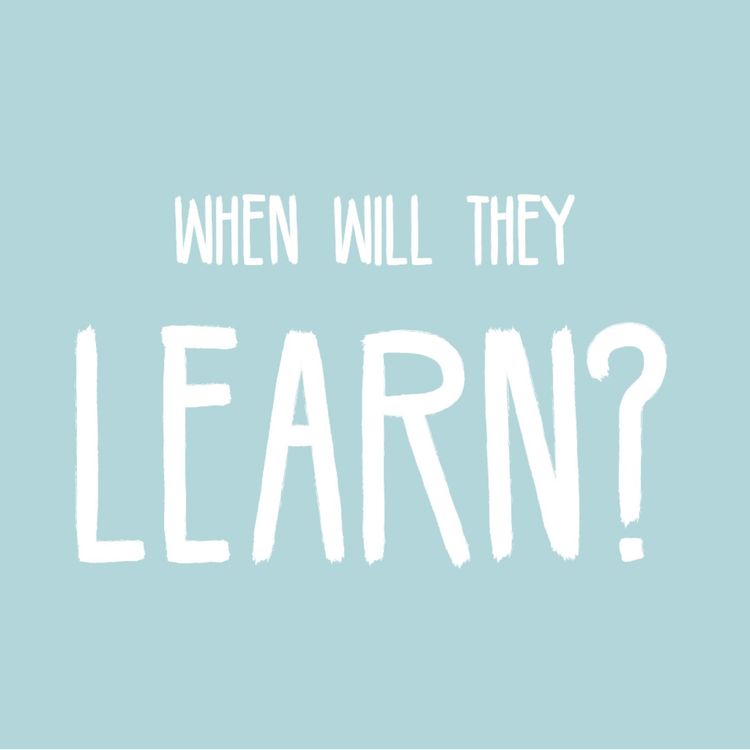
When will they learn?
Dr Jo Taylor - Part 2
As I said for Part 1 of this interview, Jo and I are colleagues as Compassion-focused Coaching Supervisors with The Difference.
He is a Child and Educational Psychologist, Royal Society of Arts and Churchill Fellow, advisor to Foundation for Education Development and Queens Commonwealth Trust, writer, researcher, podcaster and also a very cool human being.
I had originally intended to talk to Jo about the similarities and differences in our work, but there ended up being too many other interesting avenues to go down - mostly around Supervision and working with staff in schools. So this time, I tried to stay focused, and we talked at length about what I try to do and how that differs, or not, from Educational Psychology.
References:
Heather Geddes's Learning Triangles in Attachment in Classroom: A Practical Guide for Schools (2006)
Jo's podcast The Sizzle
Jo is a prolific thinker, researcher and writer and I recommend you check out his work below.
He is currently researching:
compassion as an approach for supporting care giving (https://bit.ly/3SXIyMa);
and collecting the wisdom of Educational Psychologists with over 20 yrs experience to influence practice for the next 20 years (https://constellationspsychology.notion.site/The-Psychology-Elders-Project-93cee0ccd5e246bf8f81f49ff04a4d5b).
Here is his newsletter:
https://drjotaylor.substack.com/
and website:
For feedback or to get in touch with me: @miniEDresearch on Twitter or email ed@edtherapy.co.uk
Please complete this 1-minute feedback survey too.
Thanks for listening!
More episodes
View all episodes
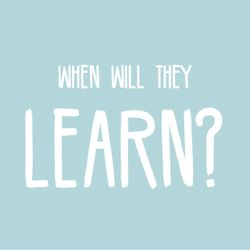
1. What is Educational Psychotherapy?
01:04:24||Season 1, Ep. 1I talk to two fellow Educational Psychotherapists about how we define what we do.We did this partly to help ourselves figure it out! But also because, being quite a niche field, we find ourselves having to explain it a lot.We got into some of our ways of working with young people, the 'task' that differentiate Educational Psychotherapy from other types of psychotherapy (we think), how we work with schools and our main influences from psychoanalytic theory and neuroscience.Here are some of the people and theories we mention, plus any specific books we reference.Graham Music - Nurturing Children; ResparkAnne Alvarez - e.g. The Thinking HeartDonald Winnicott - 'good enough'; the squiggle gameWilfred Bion - container/containedMelanie Klein - the depressive position; envyCarl Jung - DreamsAnna Freud - defence mechanismsBruce Perry - founder of The Neurosequential NetworkAngela Greenwood - Understanding, Nurturing and Working Effectively with Vulnerable Children in Schools: 'Why Can't You Hear Me'The Anna Freud National Centre for Children and Families (where Louise did her bereavement training)Emel's websiteThe Caspari Foundation (where we trained):For feedback or to get in touch with me: @miniEDresearch on Twitter or email ed@edtherapy.co.ukPlease complete this 1-minute feedback survey too!Thanks for listening!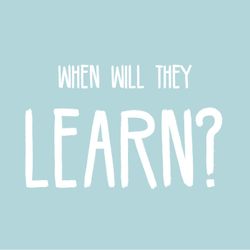
2. Lynsey Daniels on Irene Caspari
49:55||Season 1, Ep. 2I trained to be an Educational Psychotherapist a few years ago with the Caspari Foundation in London, but didn't think much at the time about the 'Caspari' bit!Over the years I became more curious about Irene Caspari, the incredible woman behind Educational Psychotherapy, and when I read Lynsey Daniels paper on her, in the Caspari Journal, I wanted to know more...Lynsey and I also talk about where 'EPT' has taken some of our colleagues and how the Advanced Diploma in Educational Psychotherapy has evolved - still with psychoanalytic theory at its core, but now with powerful sprinklings of neuroscience.Some people and books we mention:Irene Caspari (1976) Trouble Children in Class; The Collected Papers ((posthumously published in 1984, now out-of-print, but we hope to change this!)Friedrich Fröbel - the German educator who invented Kindergarten, and whose training Irene Caspari completed in LondonBettini Davou & Fotini Xenakis (1998) Feeling, Communicating and Thinking We also mention our staple theorists: Sigmund Freud, Anna Freud, John Bowlby, Melanie Klein.And fellow Educational Psychotherapists who have gone before us: Gerda Hanko, Muriel Barratt, Helen High, Mark Griffiths.EPIC stands for Educational Psychotherapy in the CommunityThe Caspari Foundation previously known as FAETT - the Foundation for the Advancement of Educational Psychotherapy and Therapeutic TeachingThere's more about Irene Caspari on the Caspari Foundation websiteFor feedback or to get in touch with me: @miniEDresearch on Twitter or email ed@edtherapy.co.ukPlease complete this 1-minute feedback survey too!Thanks for listening!
3. Marie Delaney
51:57||Season 1, Ep. 3Marie has been a source of both inspiration and practical help on my journey as an Educational Psychotherapist, particularly through her books.But she is also really engaging to listen to, full of wisdom and real-life illustration of what are sometimes abstract theories in our work.Marie’s books, available from these and other good booksellers!Teaching the Unteachable: what teachers can do when all else fails (2008)What can I do with the kid who? A quick discipline guide for teachers to deal with disruptive pupils (2010)Attachment for Teachers: an essential handbook for trainees and NQTs (2017)Using an attachment approach in the classroom in Andrea Perry (Ed) Teenagers & Attachment: Helping Adolescents Engage with Life and Learning (2009)Marie also references Heather Geddes’s book Attachment in Classroom: A Practical Guide for Schools (2006)Marie’s organisation is Trauma Responsive EducationA summary of Marie’s RETHINK model on Dr Chris Moore’s great blog EdpsychinsightThe Caspari Foundation (where we trained):For feedback or to get in touch with me: @miniEDresearch on Twitter or email ed@edtherapy.co.ukPlease complete this 1-minute feedback survey too!Thanks for listening!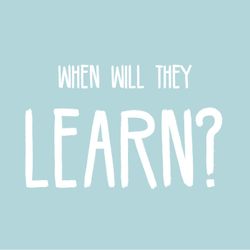
4. Ingrid Cleaver
59:06||Season 1, Ep. 4Ingrid Cleaver is a vastly experienced Educational Psychotherapist, SENDCO and teacher - now in semi-retirement but continuing to contribute to the EPT community through her writing and teaching work.Her article in the 2022 Caspari Journal is entitled -Learning Begins Long Before Children Arrive at School: A brief exploration of certain developmental theories and links tolearning in Educational Psychotherapy (Contact the Caspari Foundation for copies of the journal).It is this paper that got me thinking about how we use our knowledge of developmental stages to figure out where to start with the young people we work with.Ingrid explains, with lively examples, how some of this work looks in action, and also how we can help teachers to deal with and contain the difficult feelings that arise in the classroom.Here are some of the people and theories we mention, plus any specific books we reference:Muriel Barratt - 'second-chance learning'; see also Jenny Dover and Jill Salmon's writing in Reaching and Teaching Through Educational Psychotherapy (2007)Dr Gabor MatéWe also mention the 'big names' for us: Sigmund Freud, Anna Freud, Donald Winnicott, Melanie Klein.For feedback or to get in touch with me: @miniEDresearch on Twitter or email ed@edtherapy.co.ukPlease complete this 1-minute feedback survey too!Thanks for listening!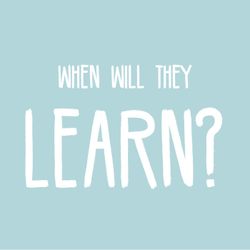
5. Luke Palmer
01:09:09||Season 1, Ep. 5I have wanted to interview Luke for a long time - he was a lecturer on the Caspari Foundation course when I trained and I have been a participant in clinical groups he has facilitated, and I have always been so inspired by his incredibly broad knowledge and ability to draw on theory to illuminate work with a child in the room. We talk about Luke’s interesting journey from artist to Learning Mentor to Educational psychotherapist to Supervisor, School Governor, Caspari Tutor and Trustee. He explains his use of Bruce Perry’s three Rs - regulate, relate, reason - from the neurosequential model of development, to inform his interaction with children in the therapy room, and his ideas about containment, play and the third space. We also talk about other complementary modalities such as DDP (Dyadic Developmental Psychotherapy), Theraplay and BUSS (Building Underdeveloped Sensorimotor Systems) and how they have influenced Luke’s work.Here are the organisations, ideas and books Luke references:Caspari FoundationTouchBaseDDPTheraplayAttachment in Classroom: A Practical Guide for Schools (2006) - Heather GeddesSubjects of Analysis (1994) - Thomas H. OgdenSensory Solutions in the Classroom (2021) - Carmen Lamp & Monique ThoonsenLuke also mentions:Joseph's Campbell's famous idea of the Hero’s Journey;Julia Mitchell’s various work on siblings;and Don Carveth's YouTube ChannelFor feedback or to get in touch with me: @miniEDresearch on Twitter or email ed@edtherapy.co.ukPlease complete this 1-minute feedback survey too.Thanks for listening!
6. Dr Jo Taylor
56:57||Season 1, Ep. 6Jo and I are colleagues as Compassion-focused Coaching Supervisors with The Difference.He is a Child and Educational Psychologist, Royal Society of Arts and Churchill Fellow, advisor to Foundation for Education Development and Queens Commonwealth Trust, writer, researcher, podcasterand also a very cool human being.I'd been wanting to talk to him for ages about Educational Psychology, what he feels it is and needs to be, and what similarities and differences we see between our fields. We ended up talking a lot about Supervision and working with staff, and also about systemic issues.I hope there will be more - it felt like we only scratched the surface!References-wise, he mentions the ideas of Urie Bronfennbrenner and his ecological systems theory which influenced the direction Jo's work has taken.Jo is a prolific thinker, researcher and writer and I recommend you check out his work below.He is currently researching:compassion as an approach for supporting care giving (https://bit.ly/3SXIyMa); and collecting the wisdom of Educational Psychologists with over 20 yrs experience to influence practice for the next 20 years (https://constellationspsychology.notion.site/The-Psychology-Elders-Project-93cee0ccd5e246bf8f81f49ff04a4d5b).Here is his newsletter:https://drjotaylor.substack.com/his podcast:https://pod.link/1439247772and website:www.drjotaylor.comFor feedback or to get in touch with me: @miniEDresearch on Twitter or email ed@edtherapy.co.ukPlease complete this 1-minute feedback survey too.Thanks for listening!
8. Lee Marsden
47:46||Season 1, Ep. 8This is another interview that’s a long time coming - I’ve known Lee Marsden since I trained with the Caspari Foundation. She’s one of the very experienced Educational Psychotherapists still involved with the Caspari Foundation and its Advanced Diploma. She has also been an invaluable support to me as I’ve taken on editing the Caspari Journal with another esteemed colleague, Louise Mullier.Lee trained as a Secondary English teacher and then had a fascinating journey through her career, helping children and staff in schools, in Simmons House Adolescent Unit, the Tavistock Day Unit and the Cassel Hospital, a psychiatric unit in Richmond.I’d been wanting to talk to her for some time about working in multidisciplinary settings, an area I am both curious about and very challenged by!This became a really interesting discussion of how this type of work can be most effective - for example, working with parents and doing reflective work with staff; and also how things have and could change within the education system, and for us as therapeutic teachers and/or Educational Psychotherapists.References:The Internal and External Worlds of Children and Adolescents: Collaborative Therapeutic Care (The Cassel Hospital Monograph Series) Eds. Lesley Day & Denis Flynn Not Now, Bernard by David McKeeDon’t Dawdle Dorothy by Margrit CruickshankThe Caspari FoundationFor feedback or to get in touch with me email ed@edtherapy.co.ukPlease complete this 1-minute feedback survey too.Thanks for listening!
9. Jenny Dover
57:36||Ep. 9Jenny Dover is one the foundational Educational Psychotherapists I have held in high-esteem since the beginning of my training. She gave some of the most interesting and insightful lectures when I was studying the Advanced Diploma, she was referenced continually, with great love and respect, at the CAMHS clinic I trained at in London, and she has been inspirational and encouraging on my journey since, especially with regard to her work as an Editor on the Caspari Journal.Jenny talks about her story, from her relationship with her mother, to her experience of school and on into teaching English Literature, working as a SENDCO and then training and working as an Educational Psychotherapist in a London CAMHS clinic. She shares her wisdom on assessment, tasks and the future of Educational Psychotherapy, drawing on her vast experience. I always find it enlivening to listen to her or read her work. I don't know how many times I have read Reaching and Teaching, the book she co-authored with Gill Salmon, but it is a high number! And each time brings something thought-provoking and practically useful for working with children.Thank you, Jenny, for such a rich conversation!References:Reaching and Teaching through Educational Psychotherapy: A Case Study Approach by Gillian Salmon and Jenny DoverObserving and Interpreting by Jenny Dover in Therapeutic Practice in Schools: Working with the Child Within: A Clinical Workbook for Counsellors, Psychotherapists and Arts Therapists, Eds. Lyn French and Reva KleinThe Caspari FoundationFor feedback or to get in touch with me email ed@edtherapy.co.ukPlease complete this 1-minute feedback survey too.Thanks for listening!